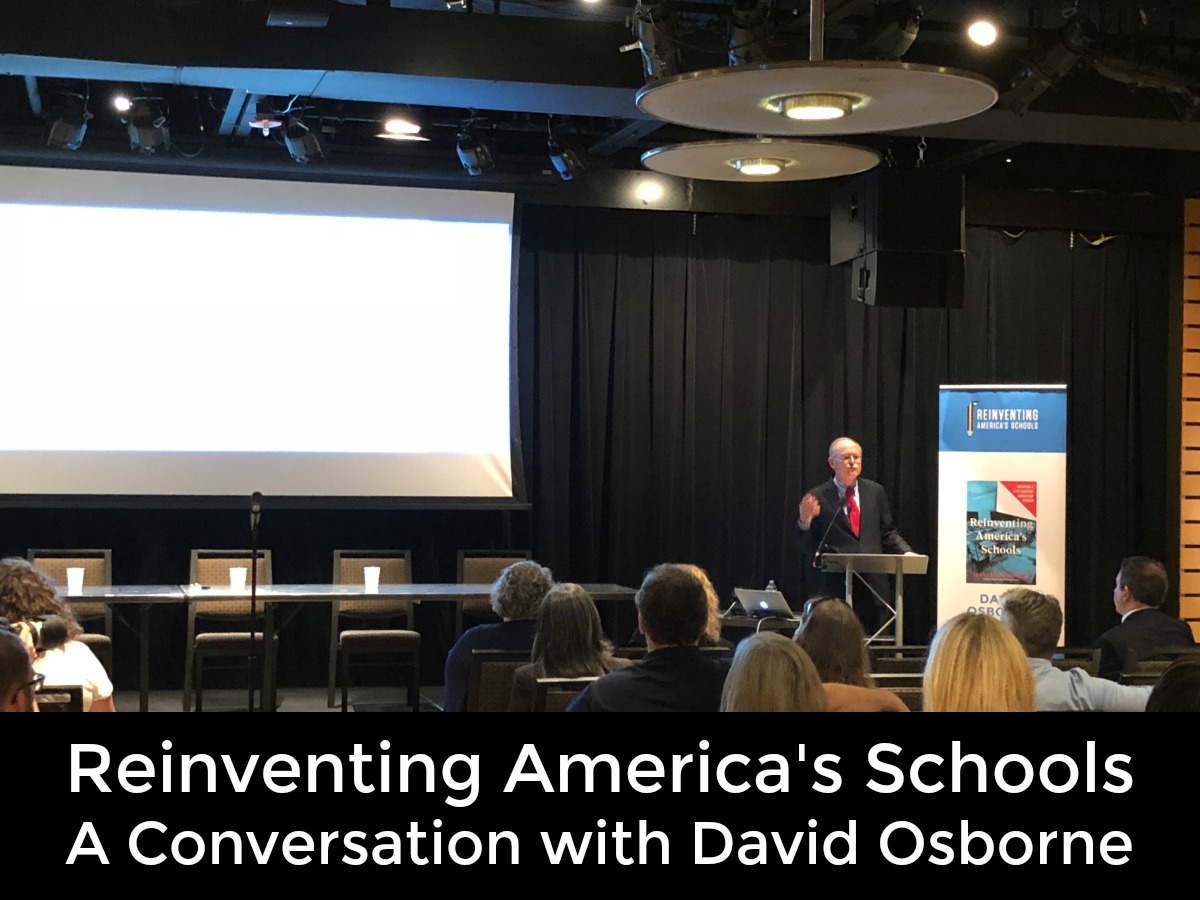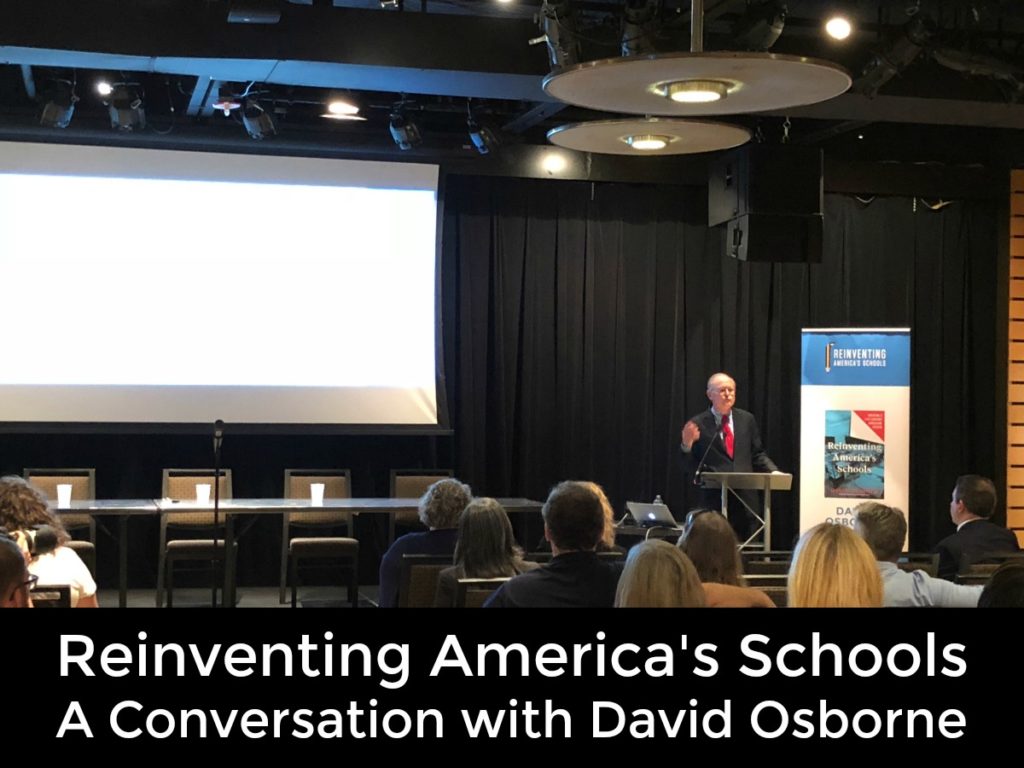
Many of my recent posts have been profiles of new schools opening in San Antonio, and those stories are exciting to share. But thoughtful readers ask me, and I wonder for myself, where is this going? What does the growth of new public charter schools and in-district charter schools mean for the overall quality of education in San Antonio? The answer is that we are heading towards a 21st century education system, as described by David Osborne, author of Reinventing America’s Schools and a project director at the Progressive Policy Institute . He recently spoke to a group of community members at the Pearl Studio and participated in a panel discussion that included Mark Larson, CEO of KIPP San Antonio; Marisa Bono, Chief of Policy in the office of Mayor Ron Nirenberg, Pedro Martinez, Superintendent of San Antonio ISD, and moderator Robert Rivard, publisher of the Rivard Report.
Osborne’s book, as you can learn from this excerpt from the introduction, describes patterns of change in cities that now have high enrollment of students in public charter schools, innovation schools, or other choice programs. New Orleans, recovering from Hurricane Katrina, has nearly 100 percent of students enrolled in public charter schools. In Washington, D.C., it’s nearly 50 percent. In Denver, more than half of the campuses in Denver Public Schools are in-district charter schools or schools of innovation.
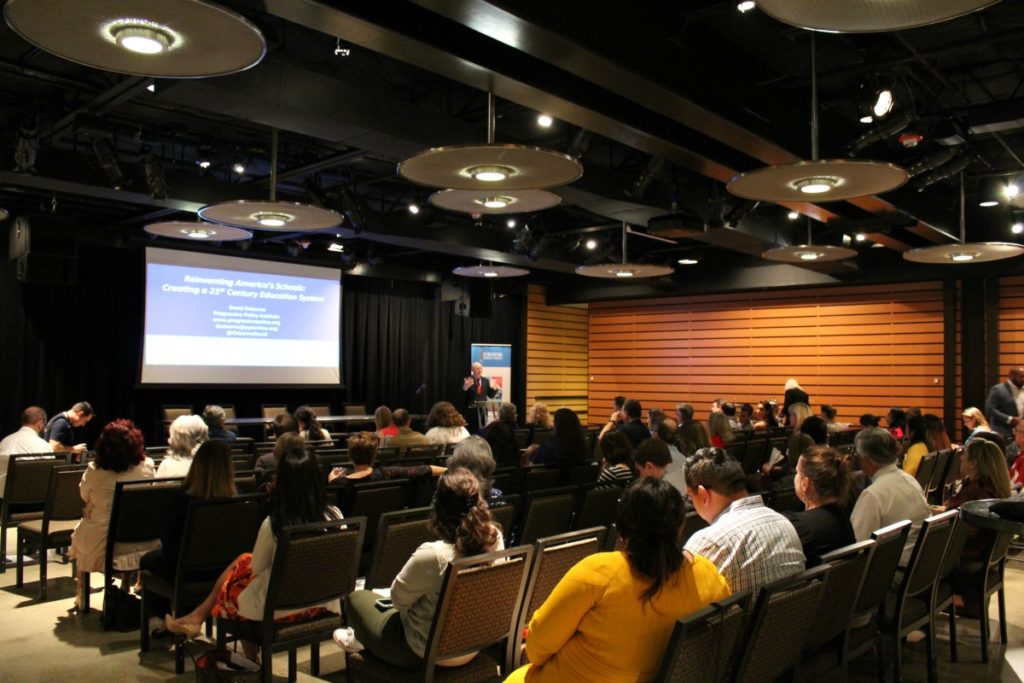
In the cities Osborne studied, expanding public school choice has led to better education outcomes for students. The process did not rely only on the growth of public charter schools, but also involved schools in traditional public school districts that improved by borrowing ideas from the charter school sector. Osborne talked about the transformation process in Denver, which he noted is a good model for San Antonio because, among other similarities, it also has an elected school board and an appointed superintendent. The superintendent of Denver Public Schools (DPS) observed that bureaucracy made it difficult to turn around failing schools, so the district closed its worst-performing schools. For high-performing charter schools like the Denver School of Science and Technology, DPS offered space in buildings and money to help close the gap in per-student funding. Also, DPS created innovation schools within the district that could act like charter schools, even allowing the schools to waive parts of the collective bargaining agreement. As a result of these changes, DPS have higher rates of academic growth.
In Denver, parents choose from a portfolio of different public school models. However, Osborne joked that “portfolio” sounds too corporate, so he prefers the term “21st century education system.” An essential factor is the partnership between the charter authorizer—whether it’s a specialized agency, a school board, even a mayor—and the school operators, whether they are part of a nonprofit (as for many public charter schools) or an empowered school leadership team within a traditional school district. The authorizer holds the schools accountable for results, and closes failing schools, but imposes fewer rules and gives the schools autonomy to hire and fire. Osborne describes these roles as “steering versus rowing.” Osborne summarized the set of conditions that lead to high quality programs: autonomy, accountability, choice for parents, diverse educational models, competition among schools, and independent operators. To close his presentation, Osborne showed a video about Troy Simons, a student at Yale Divinity School who rose from the post-Katrina New Orleans public school system.
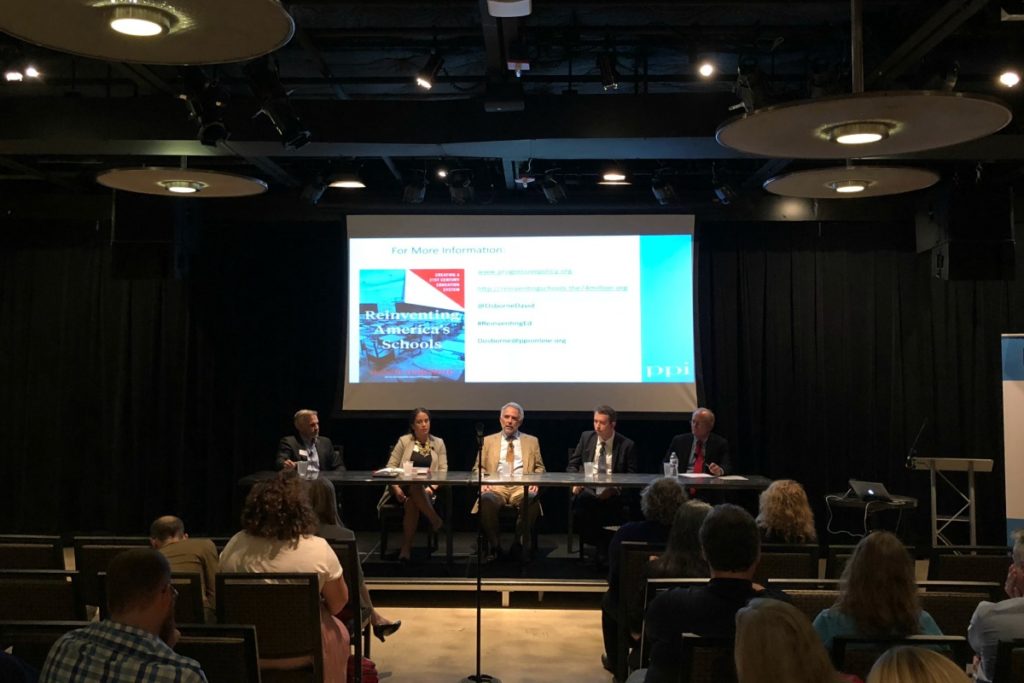
The panel discussion offered perspectives about how San Antonio is developing its 21st century education system. The growth of public charter schools has been controversial. Marisa Bono expressed frustration about debates that pit public charter schools against traditional public schools. In the realm of school finance, traditional public schools worry when students leave for public charter schools and take funding with them, while the traditional public school still has to meet its operating expenses in the short run.
Bono also compared the performance of traditional public schools and public charter schools. Bono’s perspective is that the data on charter school performance is mixed; she sees some public charter schools that are doing well and some traditional public schools that are doing well. Bono’s major concern is that the state budget is not putting enough money into public education overall. However, there are some problems with Bono’s analysis. Recent studies, including a 2017 report from CREDO, show public charter schools in Texas really are outperforming traditional public schools. Regarding Bono’s plea to add more money to the current system, Osborne said, “In my 30 plus years of studying government systems, I’ve learned that adding money to a dysfunctional system does not fix it. First, you have to fix the system so that people can be more effective in it.”
Pedro Martinez talked about what San Antonio ISD is doing to reinvent itself. He spoke with pride about in-district charter schools that feature new educational models, but without the entry barriers of typical magnet schools. The goal is to create schools that are diverse by design. “It’s important to assemble a diverse set of learners,” said Martinez. He acknowledged the challenge bringing the system of specialized schools to scale.
Martinez believes in borrowing ideas from charter schools, including the Pipeline for College Success program, modeled on KIPP Through College. San Antonio ISD launched a new enrollment system to make it easier for parents to navigate the application process. The next step, hinted at by Larson, would be a unified enrollment system that includes public charter schools as well. Such a system might level the playing field between well-educated, well-informed parents and those who are new to the concept of school choice.
Mark Larson, when he was preparing to launch KIPP San Antonio 15 years ago, approached San Antonio ISD about opening an in-district charter school, and they turned him down. Now Larson can laugh about the rejection; he said he believes that it was for the best, and he is happy that San Antonio ISD is now considering partnerships with public charter schools. “I never cared if a school was a charter school or a traditional public school,” Larson said. “Our goal was creating great schools where all kids could succeed.” Larson agrees with Osborne that the path to success is a portfolio of different school models. “It was never our intention that KIPP was the answer to everything. Our goal has been to show that children of color can succeed, and then to teach and share our ideas with others.”
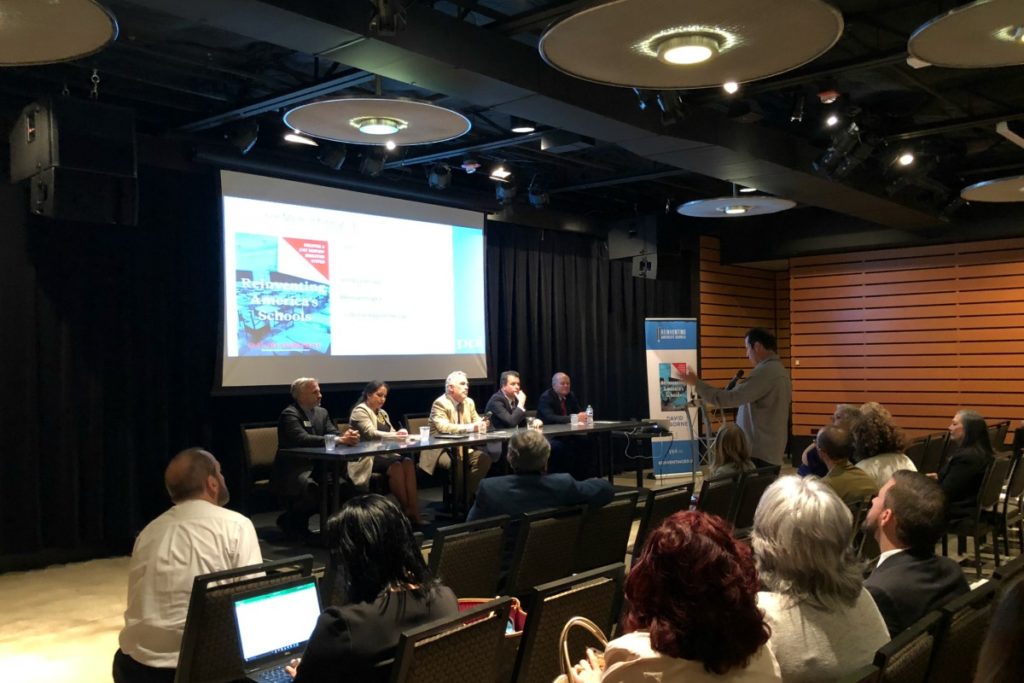
Larson teased Osborne that his next book should be about San Antonio. He has a point. San Antonio’s education system is in the midst of a major reinvention. When friends and readers have asked me about the big picture, I tell them that I don’t foresee a future when every student in San Antonio attends a public charter school. However, the 21st century education system that Osborne describes seems desirable and plausible, even likely, in San Antonio. Under the leadership of Superintendent Martinez and board chair Patti Radle, San Antonio ISD is embracing innovation; the power of competition may drive the other 16 school districts in Bexar County to follow suit. Offering San Antonio families a portfolio of school options is a good way to raise academic achievement.
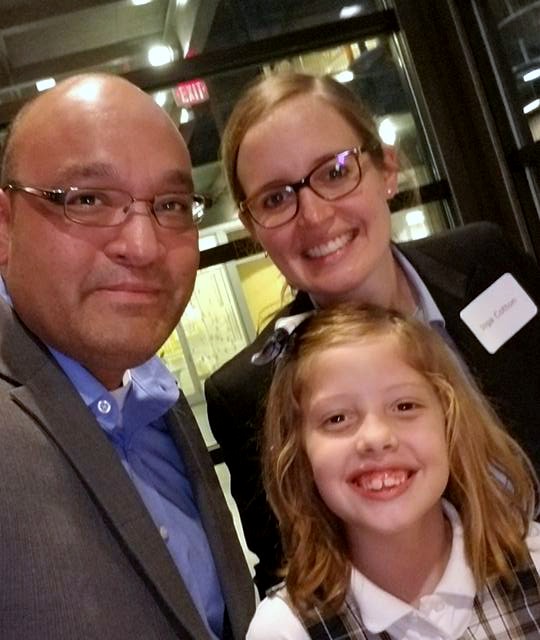
My daughter and I took a selfie with José Macias, Secretary of the Board of Trustees at Judson ISD and Regional Development Director at Southwest Preparatory School.
Read more:
- Reinventing America’s Schools microsite at the74million.org
- “Education Experts: Public Schools Must Embrace Change to Succeed,” Edmond Ortiz, Rivard Report, December 5, 2017
